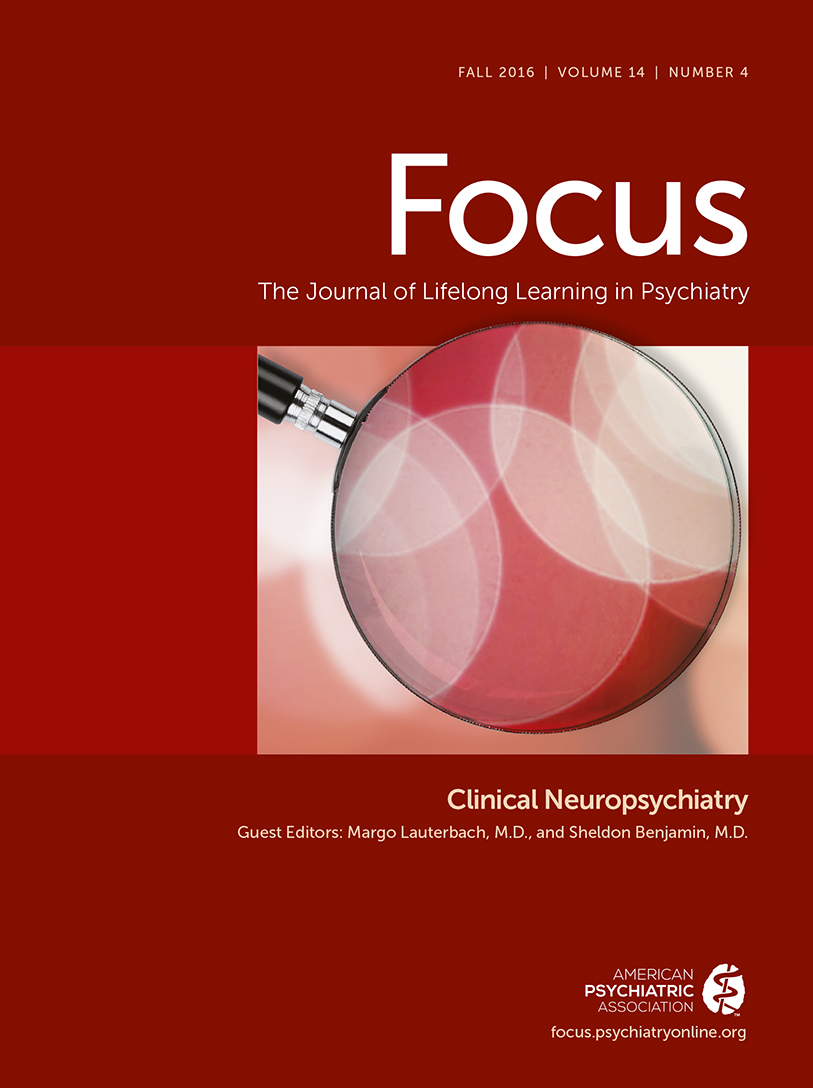Autoimmune Encephalitis
Abstract
Antibodies to brain cell-surface proteins have recently been identified in patients whose symptoms cross the boundary between neurology and psychiatry and are associated with syndromes that are responsive to treatment with immunosuppression-based treatments. This has led to an expansion in the field of autoimmune encephalitis. The common syndromes, with particular relevance to psychiatry, are discussed, in particular the N-methyl-d-aspartate receptor antibody encephalitis syndrome, which is most often associated with a psychosis and cognitive prodrome resembling acute or first-episode psychosis. The recognition, clinical diagnosis and associations, and evidence for disease mechanisms are discussed in this brief review.



